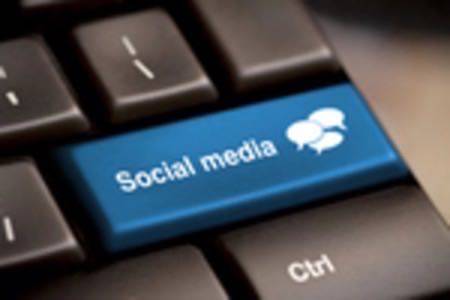People are building businesses around Facebook, Twitter and, most recently, Pinterest. Wall Street is getting ready to be on Facebook’s initial public offering. Everyone is seemingly in love with the potential to profit from social media.

But before we declare social media the next big thing once and for all, let’s consider some of the real and potential risks that could have us likening Facebook to MySpace and Twitter to GeoCities.
Improving Economy
Twitter was founded in 2006, and Facebook opened its network to the masses in 2007. That also happens to be the year the current global recession started.
In the U.S. and countries throughout the world, unemployment rates have hit post-World War II record levels. And many people who are working are underemployed, meaning they have more time to devote to sites like Facebook, Twitter and Pinterest.
Branding expert Rob Frankel, who has a less-than-upbeat view on the social media hype, says this may the biggest – yet least-perceived – threat to social media growth going forward. An improving economy will mean more people working more hours with less time to devote to killing time on social networks.
“I think this is a real factor that no one is paying attention to,” he said.
Don’t, however, assume that professional networking site LinkedIn will take the hardest hit. People with jobs tend to hold onto them when the economy is down, and an improving economy may have them dusting off resumes and networking to take a chance on a new profession. Twitter may also weather an uptick in the economy, as it has positioned itself more as a communication platform than a social network.
In other words, the networks most likely to be hurt are the ones that are truly social, such as Facebook.
Twitter Trouble
Twitter needs to find a way to make money, and that will almost certainly involve more advertising. That, as we reported last week, could lead to user backlash and diminish the site’s usability.
“Because it’s really short-form, a lot of people have grown to view Twitter as an essential form of fast communication,” Carl Howe, vice president at the Boston-based Yankee Group, told the Boston Herald. “Ads make this an essential form of slow communication. It ends up polluting the well.”
But Twitter isn’t the only company that could be hurt by this backlash. Companies ranging from third-party app developers to companies like TweetReach, that analyze Twitter data and look for broad social, cultural and economic trends, could find their data is corrupted or, at the very least, a less representative sample. We may already be seeing some of that effect, based on recent reports that Twitter is not as effective as once believed in predicting Hollywood box office numbers.
Copyright Out of Control
You may love Pinterest and Tumblr, but the copyright concerns being raised about both services are real. While the social networks seem to have the upper hand for now, that can change quickly.
Just ask Napster.
Beyond that, companies and individuals may soon start to realize that sites such as Facebook have policies that, in effect, give them ownership of material you share on the site. The social networks argue that those policies protect them from copyright challenges directed at the social network and promise they won’t exercise control beyond that.
But keep in mind, they can exercise that control if they want to.
If a two-year-old case about an employer asking for a Facebook password can generate a slew of redundant stories and calls for a congressional investigation, think of what one high-profile copyright slip by a social network could do?
“I never understand why companies want to turn control of all their content over to Facebook when they can put it on their own site and keep ownership and control of that stuff,” Frankel said.
People Finally Understand Facebook’s Business Model
It’s no big industry secret but everyone rushing to pimp their Facebook brand page (or offering to design your brand page for a steep fee) are ignoring that Facebook wants – and needs – you to buy advertising. If the free brand pages were truly effective at drawing customers, Facebook would be creating a dangerous competitor for its own revenue stream.
In short, and as confirmed by a Facebook filing with the SEC earlier this month, the new brand pages make brands look a lot alike. They also don’t encourage return visits once a fan of a brand likes a company.
If you need more proof, look at the help section on Facebook’s website for ads and sponsored stories, which has a special section for “Success Stories and Best Practices.” No such section exists on the help page for brand pages.
Companies can advertise for as little as $1 per day on Facebook, but the most effective campaigns are running $25,000 per month and more. And super-premium ad space – such as Facebook’s logout page – is even more expensive, with price tags reportedly topping $700,000.
Which brings us back full circle to the recovering economy: When the economy recovers, most economists expect the growth to come from small business spending and hiring. And most small businesses simply can’t afford $1,000 or more per day, meaning they’ll be looking for other places to spend their online advertising budget.
Image courtesy of Shutterstock.
















